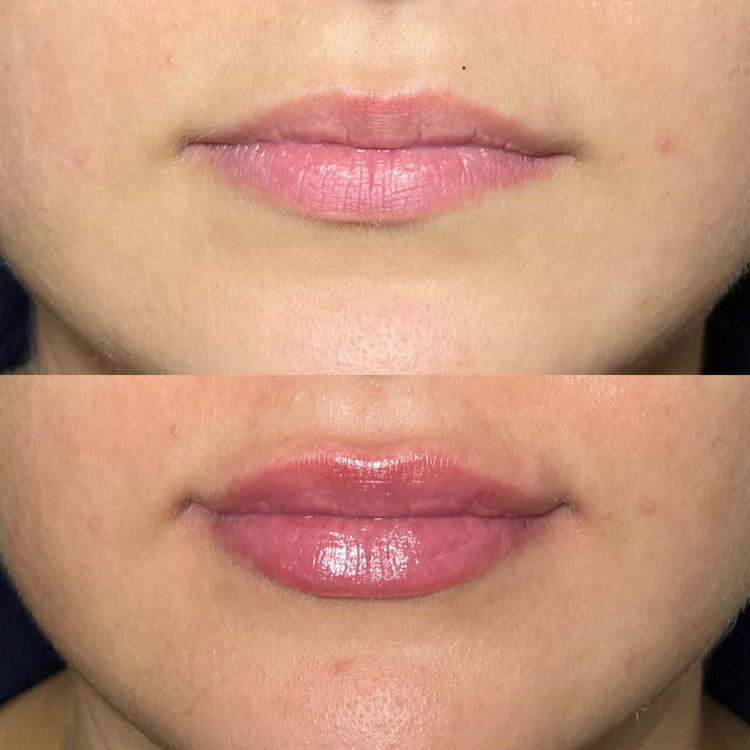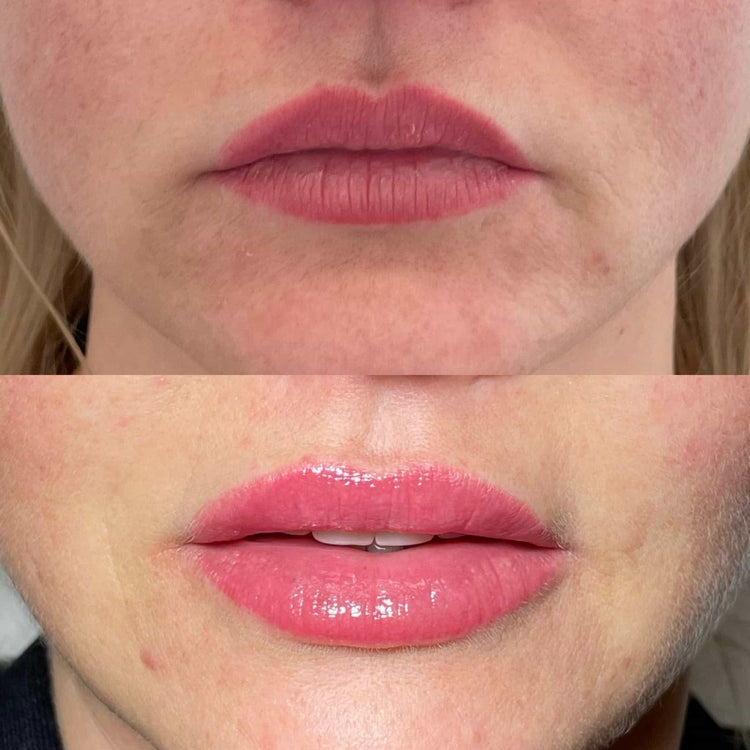Types of Lip Fillers
Lip fillers have become increasingly popular for enhancing lip size, shape, and volume. There are various types of lip fillers available on the market, each with unique properties and compositions. Hyaluronic acid-based fillers are the most common, attracting moisture to plump the lips, while collagen and poly-L-lactic acid (PLLA) fillers offer longer-lasting results.
Hyaluronic Acid Fillers
Lip fillers have become increasingly popular for enhancing lip size, shape, and volume. There are various types of lip fillers available on the market, each with unique properties and compositions. Hyaluronic acid-based fillers are the most common, attracting moisture to plump the lips, while collagen and poly-L-lactic acid (PLLA) fillers offer longer-lasting results.
Hyaluronic acid is a natural substance found in the body that helps to maintain skin hydration and elasticity. Hyaluronic acid fillers work by injecting this gel-like substance into the lips, increasing volume and smoothing out wrinkles. These fillers are typically temporary, lasting anywhere from 6 months to a year before requiring another injection.
Collagen is another protein naturally present in the body that provides structure and support to skin tissues. Collagen lip fillers can offer more long-lasting results compared to hyaluronic acid fillers, with effects potentially lasting for several months longer.
Poly-L-lactic acid (PLLA) is a synthetic material that stimulates collagen production within the lips. PLLA fillers provide gradual volume enhancement over several weeks and can last for up to two years.
Collagen Fillers
Collagen fillers are made from bovine collagen, which is derived from cows. These fillers were popular in the past but have largely been replaced by hyaluronic acid fillers due to concerns about allergic reactions and the fact that they don’t last as long.
Other Types of Fillers
Lip fillers come in various types, each with unique characteristics.
Hyaluronic acid fillers are the most common type, known for their ability to attract moisture and plump up lips.
These fillers typically provide temporary results, lasting around 6 months to a year.
Collagen fillers were once popular but have largely been replaced by hyaluronic acid fillers due to concerns about potential allergic reactions and shorter longevity.
Poly-L-lactic acid (PLLA) fillers work differently; they stimulate collagen production in the lips, leading to gradual volume enhancement over several weeks.
PLLA fillers offer longer-lasting results compared to hyaluronic acid fillers, potentially lasting up to two years.
Beyond lip fillers, other types of fillers exist for addressing various aesthetic concerns.
Dermal fillers are used to plump cheeks, smooth wrinkles, and enhance facial contours.
They are often made from hyaluronic acid or other substances that add volume under the skin.
Factors Affecting Coverage
Determining whether lip fillers are covered by health insurance in the UK is a complex issue influenced by various factors.
Medical Necessity
One of the primary factors affecting coverage is whether the procedure is deemed medically necessary. In the UK, health insurance typically covers treatments that address a medical condition rather than purely cosmetic enhancements.
Lip fillers are generally considered cosmetic procedures unless there’s a specific medical reason for their use. For example, lip fillers might be covered if they’re prescribed to treat a physical deformity or functional impairment caused by a medical condition.
Another factor is the individual insurance policy. Different insurance plans have varying coverage policies and exclusions. Some policies may offer limited coverage for certain procedures under specific circumstances, while others may exclude cosmetic treatments altogether.
It’s crucial to carefully review your insurance policy document or contact your insurer directly to determine whether lip fillers are covered and under what conditions.
Furthermore, the specific provider performing the procedure can also influence coverage. Some insurance plans may only cover procedures performed by certain qualified medical professionals.
Finally, the cost of the treatment and the justification provided for its necessity play a role in determining coverage. Insurance companies often have criteria regarding the appropriateness of the treatment and its expected benefits relative to the cost.
Cosmetic Purposes
The factors affecting whether lip fillers are covered by health insurance in the UK primarily revolve around medical necessity versus cosmetic enhancement.
Since lip fillers are generally considered cosmetic, they are unlikely to be covered unless there’s a legitimate medical reason, such as treating a physical deformity or functional impairment caused by a condition.
Individual insurance policies also play a significant role. Coverage varies greatly depending on the plan, with some offering limited coverage for specific procedures under certain circumstances while others may exclude cosmetic treatments entirely.
It is crucial to thoroughly review your policy document or contact your insurer directly to understand your coverage regarding lip fillers.
Other factors influencing coverage include the qualifications of the provider and the justification provided for the procedure’s necessity. Insurance companies assess the treatment’s appropriateness and expected benefits in relation to its cost.
Insurance Provider Policies
Determining whether health insurance covers lip fillers in the UK is complex, dependent on several key factors.
A primary consideration is medical necessity. Health insurance typically covers treatments addressing medical conditions rather than purely cosmetic enhancements. Lip fillers are generally considered cosmetic unless they serve a specific medical purpose.
For example, coverage might be granted if lip fillers are prescribed to correct a physical deformity or functional impairment resulting from a medical condition.
Insurance policies also vary significantly in their coverage for cosmetic procedures.
Some plans offer limited coverage under specific circumstances, while others exclude cosmetic treatments entirely. It is essential to review your individual policy document or consult with your insurer to understand your specific coverage regarding lip fillers.
The qualifications of the practitioner performing the procedure can also influence coverage. Some insurance plans may only cover procedures performed by certain licensed and qualified medical professionals.
Furthermore, the treatment’s cost and the justification provided for its necessity play a role in determining coverage.
Insurance companies evaluate the appropriateness of the treatment and its anticipated benefits in relation to the costs involved.
The Role of the NHS
The National Health Service (NHS) is the UK’s publicly funded healthcare system, providing a comprehensive range of medical services to all residents.

It operates on a principle of universal access, meaning that everyone has the right to receive essential healthcare regardless of their income or employment status.
The NHS is funded primarily through taxation and is responsible for a wide array of services, including hospital care, primary care (general practitioners), mental health services, ambulance services, and public health initiatives.
Availability of Lip Filler Treatment
The National Health Service (NHS) is the UK’s publicly funded healthcare system, providing a comprehensive range of medical services to all residents. It operates on a principle of universal access, meaning that everyone has the right to receive essential healthcare regardless of their income or employment status.
The NHS is funded primarily through taxation and is responsible for a wide array of services, including hospital care, primary care (general practitioners), mental health services, ambulance services, and public health initiatives.
Lip fillers are generally considered a cosmetic procedure rather than a medically necessary treatment. As such, they are not typically covered by the NHS.
Funding Criteria
The National Health Service (NHS) is the UK’s publicly funded healthcare system, providing a comprehensive range of medical services to all residents. It operates on a principle of universal access, meaning that everyone has the right to receive essential healthcare regardless of their income or employment status.
The NHS is funded primarily through taxation and is responsible for a wide array of services, including hospital care, primary care (general practitioners), mental health services, ambulance services, and public health initiatives.
Lip fillers are generally considered a cosmetic procedure rather than a medically necessary treatment. As such, they are not typically covered by the NHS.
- Funding criteria for the NHS prioritize treatments addressing medical conditions over purely cosmetic enhancements.
- The NHS aims to allocate its resources to provide essential healthcare services to the entire population.
- Patients seeking lip fillers would typically need to pay for the procedure privately.
Private vs. Public Healthcare
The Role of the NHS , Private vs. Public Healthcare in the UK
The National Health Service (NHS) is the UK’s publicly funded healthcare system, providing a comprehensive range of medical services to all residents. It operates on a principle of universal access, meaning that everyone has the right to receive essential healthcare regardless of their income or employment status.
The NHS is funded primarily through taxation and is responsible for a wide array of services, including hospital care, primary care (general practitioners), mental health services, ambulance services, and public health initiatives.
Lip fillers are generally considered a cosmetic procedure rather than a medically necessary treatment. As such, they are not typically covered by the NHS.
- Funding criteria for the NHS prioritize treatments addressing medical conditions over purely cosmetic enhancements.
- The NHS aims to allocate its resources to provide essential healthcare services to the entire population.
- Patients seeking lip fillers would typically need to pay for the procedure privately.
Alternative Financing Options
In the UK, navigating health insurance coverage for cosmetic procedures like lip fillers can be complex.

Payment Plans
When considering lip fillers in the UK, understanding the nuances of health insurance coverage is essential. While the National Health Service (NHS) primarily focuses on medically necessary treatments, private health insurance may offer some options.
Some private health insurance plans might include coverage for cosmetic procedures under specific circumstances, but this often comes with limitations and exclusions. It’s crucial to thoroughly review your policy documents or contact your insurer directly to determine the extent of coverage for lip fillers.
Alternative financing options like payment plans can be explored if coverage through insurance is limited or unavailable.
Many clinics offering lip fillers provide installment payment options, allowing you to spread the cost of treatment over several months.
Savings Plans
Alternative financing options can help make cosmetic procedures more accessible, including lip fillers. Payment plans offered by clinics allow you to break down the total cost into smaller, more manageable installments. These plans often have flexible payment schedules to suit individual budgets.
Savings plans are another option to consider for funding desired treatments. Regularly setting aside a portion of income can accumulate over time, eventually covering the cost of lip fillers or other cosmetic procedures.
It’s important to carefully compare different financing options and choose the one that best aligns with your financial situation and goals.
Conclusion
In conclusion, determining whether lip fillers are covered by health insurance in the UK is a complex process.
- Medical necessity is a primary factor, as cosmetic procedures are generally not covered unless they address a specific medical condition.
- Individual insurance policies vary widely, so it’s crucial to review your policy carefully or contact your insurer directly to understand your coverage.
- The NHS does not typically cover lip fillers as they are considered cosmetic.
- Private health insurance may offer some coverage for lip fillers under certain circumstances, but this often comes with limitations and exclusions.
Alternative financing options like payment plans or personal savings can be explored to make lip fillers more accessible.
Book a consultation for lip injections with Dr. Laura Geige at It’s Me & You Clinic
- Jaw Slimming & Square Face Treatment Near Stanwell, Surrey - September 4, 2025
- Is 1mL Of Filler Noticeable? - August 19, 2025
- How Risky Is Lip Fillers? - August 1, 2025